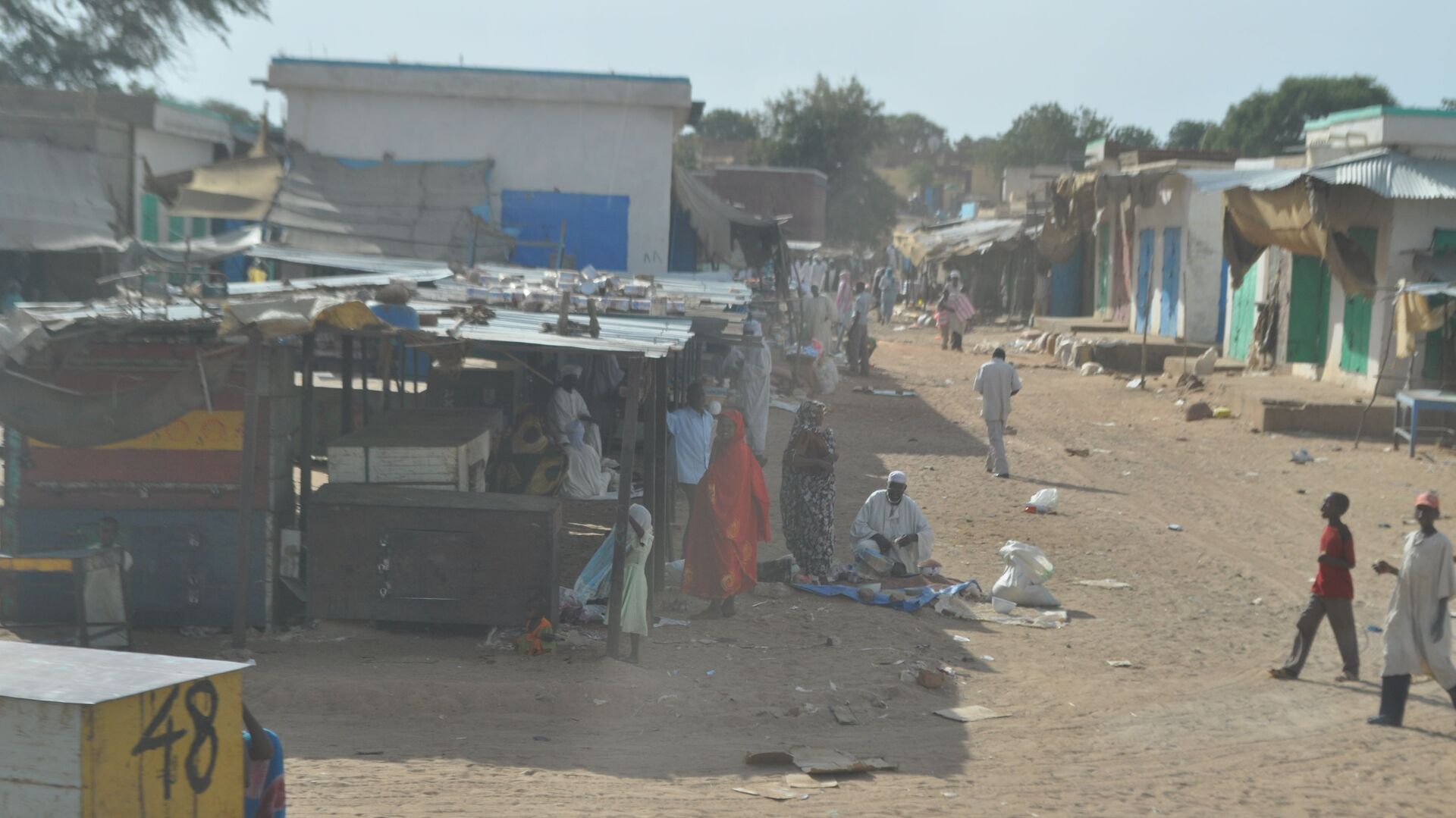UN Pledges Probe of Killing of At least 168 in Sudan’s West Darfur, Attributed to Janjaweed Militia
19:18 GMT 25.04.2022 (Updated: 11:36 GMT 23.11.2022)

© Flickr / Sudan Envoy / El Geneina
Subscribe
While Sudan’s Darfur region is severely economically depressed and underdeveloped, its high concentration of copper and uranium deposits has made it a subject of great interest by Western extraction-minded politicos.
The Special Representative of the United Nations Secretary-General for Sudan and the Head of the United Nations Integrated Transition Assistance Mission in Sudan (UNITAMS), Volker Perthes, has called for an end to the violence in Sudan’s West Darfur region and an “in-depth and transparent investigation, the results of which should be made public and help to identify the perpetrators of violence and bring them to justice.”
UNITAMS said in a Sunday statement that Volker “deplores the heinous killings of civilians in Kereneik, West Darfur as well as the attacks on health facilities” and “calls for an immediate end to the violence.”
“The UN reminds the authorities and armed groups of their international legal obligation to protect all civilians, and civilian infrastructure, including health facilities, schools and water systems,” UNITAMS added. “SRSG Perthes takes note of the measures taken today by the Sudanese Armed Forces in this regard, which included a commitment to evacuate injured civilians and calls for the acceleration of the deployment of the joint security keeping forces as per the Juba Peace Agreement.”
The 2020 deal, signed in the South Sudanese capital of Juba, aimed to resolve decades of conflicts with the Sudanese Revolutionary Front (SRF) in Darfur, as well as the Sudan People's Liberation Movement – North (SPLM-N) in South Kordofan and Southern Blue Nile regions.
Despite the peace treaty, violence has continued, as not all active militant groups were included in the accords and much of Sudan remains in dire need of economic support.
At the same time, western Sudan also has the third-largest copper and the fourth-largest uranium deposits worldwide, and it produces two-thirds of the highest quality gum Arabic in the world - a major ingredient in Coke and Pepsi sodas.
Earlier on Sunday, Adam Regal, a spokesperson for the General Coordination for Refugees and Displaced in Darfur, said that at least 168 people had been killed since violence erupted on Thursday.
According to Africa News, the violence started in the Krink region, where Arab nomads set upon Massalit communities with fire and heavy weapons, driving thousands from their homes. In the provincial capital of Genena, homes were set on fire and hospitals were attacked and looted.
Rights groups said the violence was started by an Arab militia called the Janjaweed, a nomadic group long at odds with the region’s settled populations over scarce food and water supplies. In the early 2000s, they were the principal force implicated in the genocide in Darfur against the Massalit as well as the Fur and Zaghawa tribes. By 2013, the UN had estimated that 300,000 people had been killed, while many more were wounded or raped, and more than 1 million were displaced by the violence.
That same year, the Janjaweed became part of the Rapid Support Forces, a paramilitary force controlled by the Sudanese government. Since its formation it has been commanded by General Mohamed Hamdan Dagalo, better known as Hemedti, who has been deputy chairman of the interim Sudanese government since longtime ruler Omar al-Bashir was overthrown in April 2019.
Despite the popular democratic revolution, the Sudanese military has held onto power, in large part by using the Janjaweed against protesters. In October 2021, the head of the Sovereignty Council, Gen. Abdel Fattah al-Burhan, forced the civilian Prime Minister Abdallah Hamdok from power, reigniting the massive democratic movement. Dozens have been killed by police in clashes in almost every major Sudanese city in the months since.
Before Bashir’s overthrow, he also sent some 10,000 Janjaweed fighters to serve under Saudi command in the Riyadh-led war in Yemen against the Houthi movement. Used as shock troops in Houthi-controlled cities, the Janjaweed have suffered heavy losses in Yemen.

